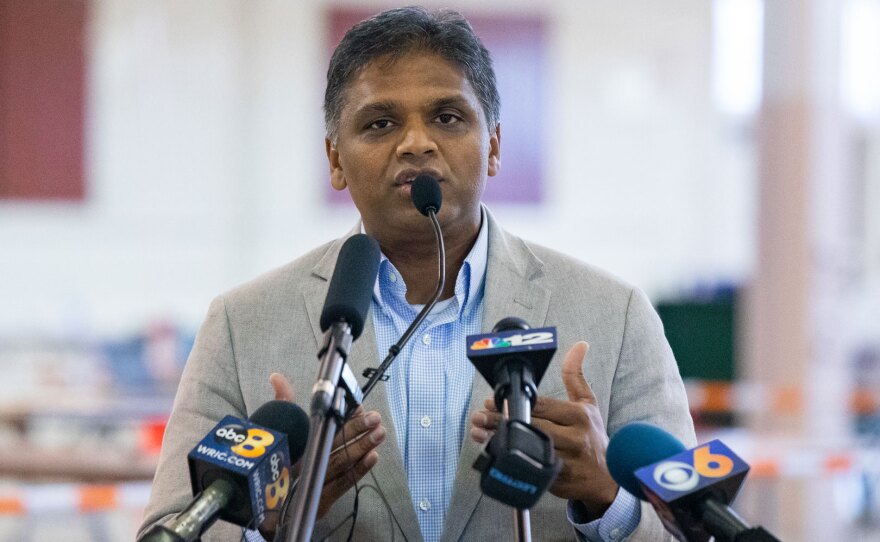Doctor Danny Avula, who leads Virginia’s vaccination efforts, says he’s sticking by the latest guidance from the Centers for Disease Control and Prevention that says people who are fully vaccinated don’t need to wear masks. This comes as the Delta variant of the coronavirus continues to raise alarms.
On Friday, the World Health Organization said everyone, including those with the vaccine, should keep their masks on to curb the spread of the highly contagious Delta variant. Avula says these recommendations make sense for countries facing more dire situations, but given the progress the United States has made in recent months, he’s not as concerned for Virginians.
“I think the context domestically — given our much higher rates of vaccination than many countries because of access and the efforts people have made to get vaccinated, paired with relatively low, or extremely low, rates of COVID — I think we can still cling to the guidance of: If you’re fully vaccinated, you do not need to wear a mask,” Avula said during a Tuesday press conference.
He said Virginia is keeping an eye on how the variant behaves in the region, and his guidance may change if there are “breakthrough cases” or “significant clusters” of the Delta variant in the future.
As of now, 48 cases of the Delta variant have been confirmed in Virginia; 21 of those have been reported in the Central Virginia region. Avula said 76% of Delta cases in Virginia have not been travel-related, which means the variant is spreading locally.
“It’s basically doubling every week,” Avula said. “We are in a great place. We are seeing some of the lowest rates of COVID that we have at any point during the pandemic. But this is not over, and we fully expect there to be another surge in disease later in the summer or early fall due to this new variant.”
The Virginia Department of Health continues to monitor the spread of the Delta variant and update its variant tracker weekly. In the meantime, Avula and other local officials encourage everyone to get the COVID-19 vaccine, which is free of charge and protects against all known variants of the virus.
Last week, Gov. Ralph Northam announced Virginia had reached President Joe Biden’s goal for states to vaccinate 70% of their adult residents by July 4. However, the Virginia Mercury reported that some localities have performed better than others, with high vaccination rates in Northern Virginia boosting statewide immunization numbers while Southside and Southwestern Virginia lag behind.
Regarding booster shots, Avula says immunity data from the first round of vaccines show the shot to be effective and long-lasting, so it’s still unclear when or if a booster will be needed. “I do think boosters are in the future. If I had to guess, I think we’d be looking at 2022,” Avula said.
The doctor also confirmed that an increase in risk of myocarditis, a condition that causes mild heart inflammation, does in fact seem to be a rare side effect of the COVID-19 vaccine, most often among young men ages 16 to 30. He specified this side effect has been observed in people who receive their second dose of an mRNA vaccine, like Pfizer or Moderna, and it is very rare.
“If you vaccinated a million young adults, with either Pfizer or Moderna, you would prevent 8,000 cases of COVID, approximately 200 hospitalizations, 52 ICU infections and death, as compared to somewhere between 30 and 48 cases of myocarditis,” Avula said. “That risk-benefit calculation is always what we’re using.”
During the press conference, Richmond Mayor Levar Stoney announced the city will receive a $4 million grant from the federal government to continue to fight COVID-19 and to fund health literacy programs. Richmond is one of 73 local governments that will receive these awards from the Department of Health and Human Services’ Office of Minority Health.
“Over the next two years, we will use these funds to work with community-based organizations to develop health literacy plans, to increase the availability, acceptability and use of COVID-19 health information and resources, as well as address health disparities amongst our at-risk communities,” Stoney said.
The only other locality in Virginia to receive funding through this program is Fairfax, which will receive a grant of just over $3.8 million.


